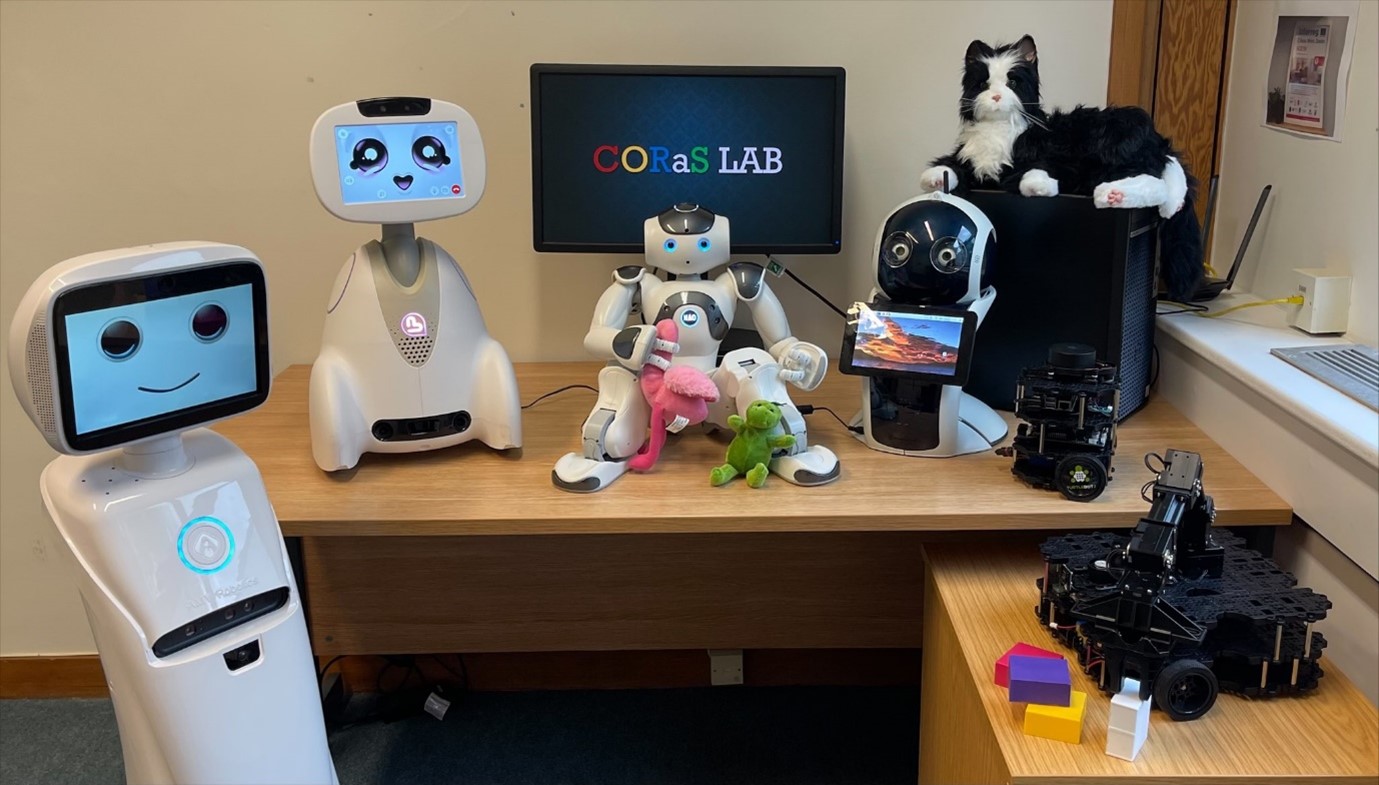By 2040, one in seven people in the UK are expected to be over 75 years old, whilst the number of people under 25 is predicted to decline. This will undoubtedly increase pressures on an adult social care sector which is already under strain – unless we can find a way of revolutionising the system.
This is just what Dr Giovanni Masala’s Cognitive Robotics and Autonomous Systems Lab (CoRAS) plans to achieve. Based in the University of Kent’s School of Computing, they are developing software for so-called “care robots” which can provide assistance to those who need it most.
This is by no means a new idea. Remember the 2012 film ‘Robot & Frank’? It centres on an older adult and ex-convict named Frank who is gifted a robot-built for the film by a team who were already working on robots for hospitals- to help him live with dementia at home. As director Jake Schreier explained in an interview at the time of release, the film’s question was not ‘human or machine?’ but ‘nothing or machine?”
In a country where 90% of local authorities only give access to publicly funded social care to those with ‘substantial’ or critical’ needs, ‘nothing or machine’ may well become the reality in the near future. But whilst research shows that older adults are willing to engage with smart devices (e.g. Alexa) where they add value to their lives, we still lack clarity around how they perceive, and receive, robots as caregivers.
This is where Dr Masala’s ground-breaking research comes in. Using machine learning technologies inspired by human cognitive architecture, he and his collaborators are developing software for robots employed in older adult care so that they can not only provide reminders to patients (such as when to take medication), but also perform physical jobs. This, in turn, enables Masala and his collaborators to test how people respond to the robots.
In 2022, Dr Masala published a study which used a robot called NAO to investigate what influences older adults’ trust in social care robots. The team of researchers programmed NAO to remind participants to take their supplements either with a ‘cold’ attitude or a more empathetic one. They found that when NAO made a mistake and recommended the wrong supplement, the participants lost trust in the robot regardless of its attitude.
You may be wondering how one makes a robot come across as empathetic. NAO robots, which stand 58cm tall and weigh 5kgs, are interactive, autonomous and fully programmable. Developed by Aldebaran Robotics, their features include the ability to see, hear, speak, feel and communicate, as well as to sense and avoid obstacles.
In the aforementioned study, the robot was programmed to shake hands with the participant and ‘read’ their expressions so as to be able to greet them appropriately. However, Masala plans to achieve much more with his team at the University of Kent:
“We study the human brain so that we can gain a better understanding of natural language features and ultimately, build robots that can communicate with more or less natural language. We hope this will enable seniors who did not grow up in the digital age to trust and engage with robots both at home and in the care setting.”
In 2015, Masala contributed to a project with international researchers to develop an artificial brain (called ANNABELL) which learns to talk by dialoguing with humans – since ranked as one of the top 5% most popular research articles of all time. Now Masala and his collaborators in the CoRAS lab are working on developing AI software that can enable robots to detect (and ultimately respond to) human moods (e.g. by playing music).
As well as having an impact in the social care sector, CoRAS lab’s work has the potential to have much wider applications. NAO robots are used around the world to study motor skills, balance, vision, language and man-machine interaction, and research is exploring their use in children’s education, assistive robotics technologies for older adults and in human robot interaction experiments.
To find out more about the University of Kent’s intelligent interactions work, visit our website.

